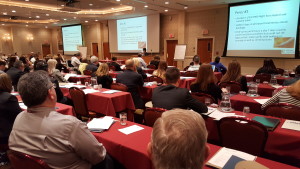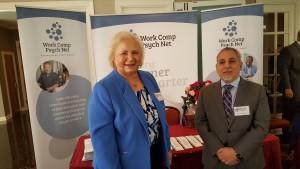Well, here it is. After more than a year of building, Workers Compensation Psychological Network Launches tomorrow.
In what seems to come right out of Star Wars’s opening line – Long ago in a galaxy far away – Richard Filippone and Mary Ann Kezmarsky had a vision, a dream of doing something never before done anywhere in America. They realized that the workers’ compensation system in New Jersey for dealing with mental and behavioral health issues was an afterthought, at best, resulting in high costs for employers, frustration for insurers and angst for injured workers. Claims adjusters did not want to “buy a psych claim,” because of the fear that doing so sent the claim into a psychological black hole and created a lifetime annuity for some PhD.
Richard and Mary Ann, PhDs of the first order, themselves, knew there had to be a better way.
And thus was born a dream that becomes reality tomorrow.
At Workers Compensation Psychological Network you’ll find a network of Psychologists and Neuropsychologists, as well as Cognitive Behavioral Health and Biofeedback experts. The network covers all of New Jersey’s 21 counties, from Sussex in the north to Cape May in the south. All members of the network have been highly trained in New Jersey’s workers’ compensation system. They have learned what employers go through every time a worker is injured and misses time away from work. They’ve learned about experience modification and modified duty and how premiums are built. They know how important is the concept of MMI, Maximum Medical Improvement. And they’ve learned all this without checking their expertise and compassion at the door.
But that’s not all. In addition to building this unique network, Richard and Mary Ann have built the nation’s first totally electronic claimant referral portal and electronic health record system. Richard had another vision – no paper. This means that a referral can happen in a matter of minutes, saving claims adjusters hours, even days of time in finding the proper person to see a claimant.
So, tomorrow, at the New Jersey Self-Insurers Association annual conference, we launch. We couldn’t be happier

